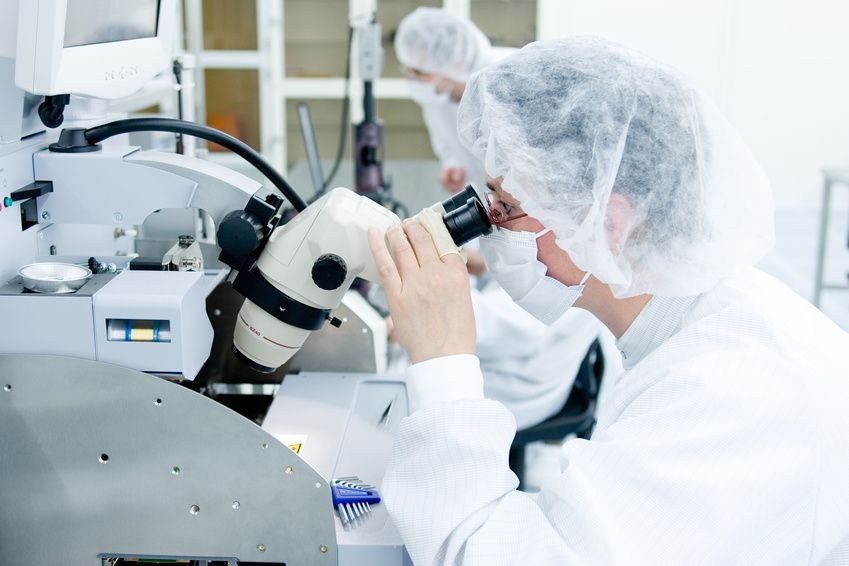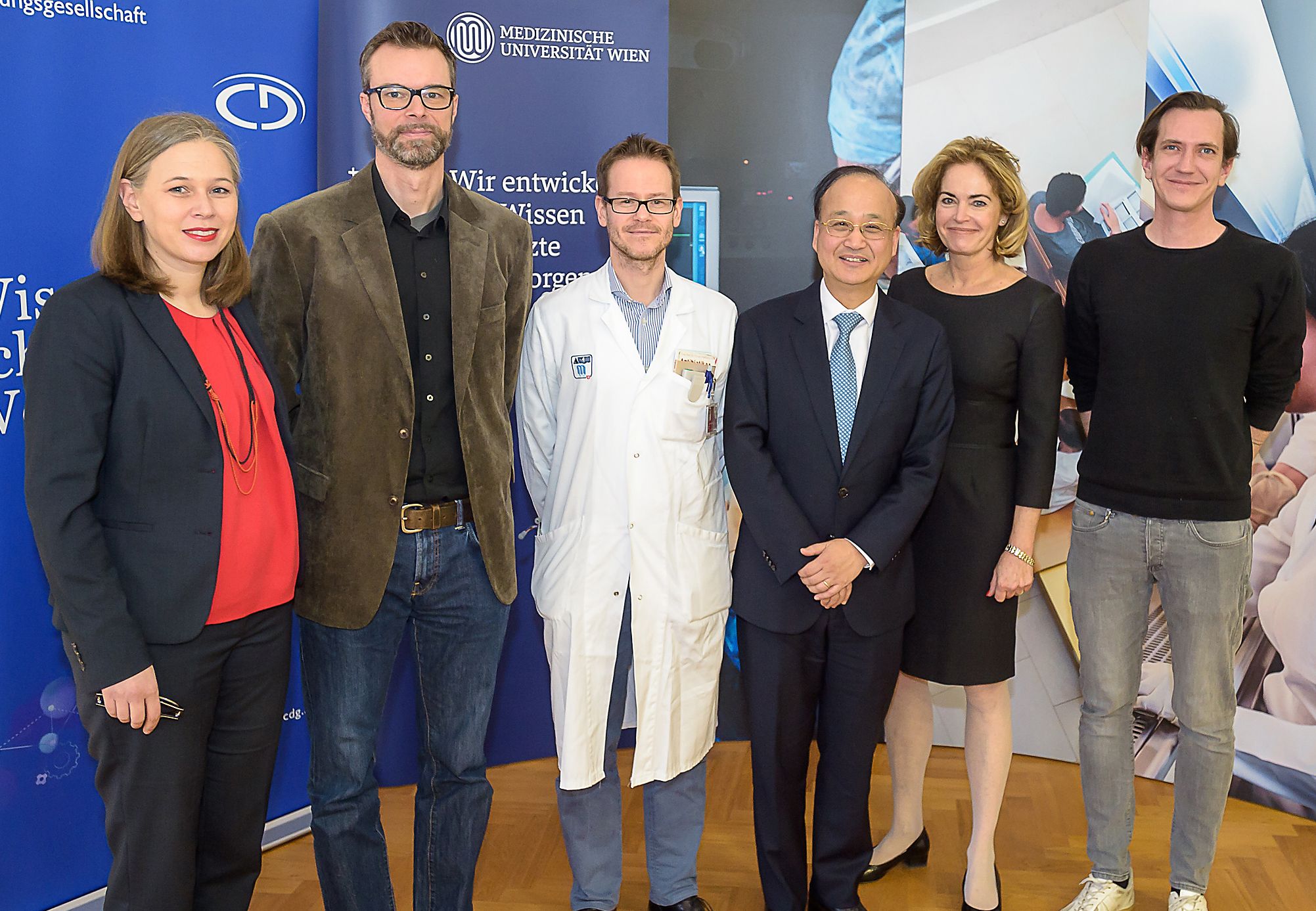
(Vienna, 5 March 2018) Arginine is an amino acid that is semi-essential to the human body, i.e. it is produced in the body as well as being obtained from food – high levels of it can be found in peas, pumpkin seeds, walnuts and chicken, for example. Arginine acts like a cell fuel and essentially has many beneficial effects – however, in a pathological situation, it can cause T-cells to overreact or lead to undesirable cell growth. These reactions can be regulated by the enzyme arginase. The newly opened Christian Doppler Laboratory for Arginine Metabolism at MedUni Vienna will immediately start looking into why arginine is so important, how recombinant arginase can be used as a medication and what new treatment options can be discovered for rheumatoid arthritis and multiple sclerosis.
Economics Ministry funds basic research
"There is a link between autoimmune diseases, diet and the immune system and the purpose of this CD laboratory is to investigate this link and gain a better understanding of it," explains Dr. Margarete Schramböck, Federal Minister for Digitization and Business Location. "Since the CD Laboratory facilitates close collaboration between basic research and commercial companies, this new knowledge can be directly transferred to form the basis for developing new medicines for use where it is needed – to help patients."
"Arginase is part of the urea cycle in the liver and also in immune cells and hence acts as a regulator for arginine," explains Gernot Schabbauer from MedUni Vienna's Institute of Vascular Biology and Thrombosis Research, Head of the CD Laboratory that opened this Monday. Trials with recombinant arginase in an animal model for autoimmunity have shown that one injection per week accompanied by an "arginine diet" brings about a significant improvement in symptoms. The advantage: artificial arginase has a long half-life and is not broken down in the body or excreted.
Excessive arginine levels also play a part in the growth and development of immune cells, which are a factor in rheumatoid arthritis and MS. Says Schabbauer: "We want to find out why arginine is so important in general and also whether we can identify metabolites that could serve as additional targets for treating these diseases." Metabolites are substances that arise as intermediate stages or as degradation products of the body's metabolic processes. This could open up completely new options for treating rheumatoid arthritis and multiple sclerosis and possibly other autoimmune diseases as well.

Interdisciplinary collaboration
The team from MedUni Vienna's Institute of Vascular Biology and Thrombosis Research, led by Gernot Schabbauer, is working closely with Jörg Menche's group at CeMM (Austrian Academy of Sciences' Research Center for Molecular Medicine), which is responsible for analysing omics data (proteomics, genomics, etc.), with MedUni Vienna's Departments of Neurology (Fritz Leutmezer) Medicine III/Rheumatology (Stephan Blüml) and with Hong Kong-based commercial partner "Bio Cancer Treatment International".
About Christian Doppler Laboratories
Christian Doppler Laboratories conduct high-level, applications-oriented basic research, whereby outstanding scientists collaborate with innovative companies. The Christian Doppler Research Association is a global model of Best Practice in promoting this type of collaborative initiative. Christian Doppler Laboratories are jointly financed by the government and the private companies involved. Most of the public funding is provided by the Austrian Federal Ministry for Digitization and Business Location (BMDW).